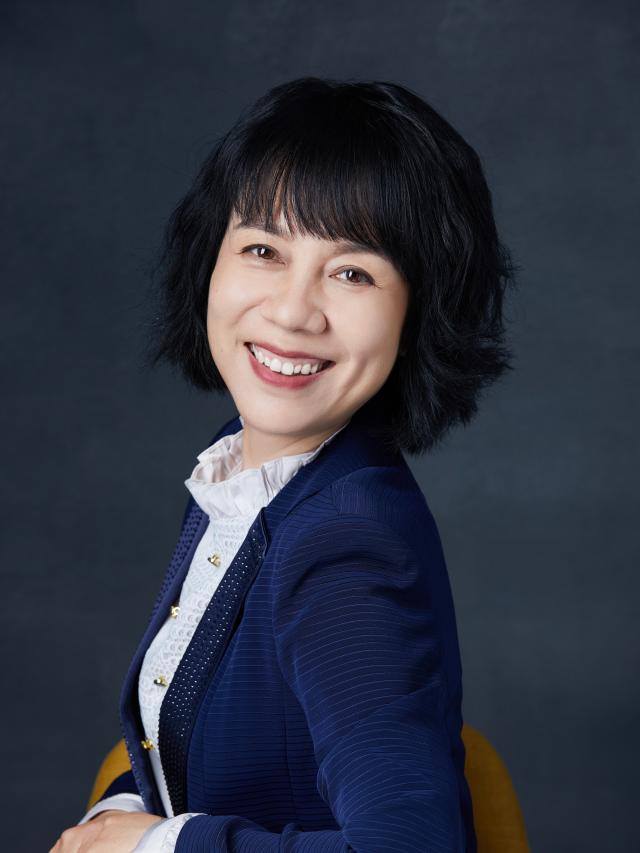MBA Lectern: Education, Human Capital, and Long-Term Development / 1st Info-Session for 2024 MBA Applications
Oct 14-2023
Topic: Education, human capital, and long-term development / 1st Info-session for 2024 MBA applications
Time: 14:00-16:00, October 14 (Saturday), 2023
Venue: National School of Development (online streaming available)
Language: Chinese
Agenda:
14:00-15:30 Introduction of MBA programs at NSD
14:30-15:30 Lecture: Education, human capital, and long-term development
15:30-15:45 Lecture Q&A
15:45-16:00 MBA applications Q&A
Scan to Sign up

About Lecturer

Prof. Lei Xiaoyan is NSD’s Professor of Economics, PKU Bo Ya Distinguished Professor, and the Ministry of Education’s Changjiang Scholar Distinguished Professor. She is also CCP Party Secretary at the NSD, Director of the NSD’s Academic Committee, Director of PKU Center of Healthy Aging and Development Studies (CHADS), Deputy Director of MOE-PKU Center for Human Capital and Policy (CHCP), Deputy Editor-in-Chief of Journal of Economics of Aging, and Rotating Chairperson of China Labor-Economics Scholars Forum 2021-2022. She received her Bachelor’s and Master’s in Economics from Ren Min University in 1997 and 2000 respectively, and Master’s and Ph.D. in Economics from University of California, Los Angeles in 2003 and 2007 respectively. Since 2007 she has been teaching at the NSD.
Prof. Lei’s major research interests include labor economics, health economics, and applied metrology. She has published dozens of academic papers in international journals, such as Review of Economics and Statistics, American Economic Journal: Applied Economics, Journal of Human Resources, as well as in domestic ones like Economic Research Journal and Economics (Quarterly).
At the NSD, Prof. Lei has taught Labor Economics (for graduate students), Empirical Strategies (graduates), Health Economics (graduates), Intermediate Micro-Economics (dual-degree undergraduates), and Management Economics (MBA).
Prof. Justin Yifu Lin: Some Advice on Current Macro-Economy
A recent edition of CPPCC Daily carried Prof. Justin Yifu Lin’s commentary offering advice for China to stabilize growth, create employment, and achieve high-quality development.
He recommended that China implement a more proactive fiscal policy in view of insufficient total demand. By investing in projects with externality and crowding-in effects, the government can shore up the confidence of residents and enterprises alike. Such projects still abound, including moving in-the-air pipes and lines underground, improving underground pipe networks, and constructing public rental apartments. These investments have to be made now or later, but dragging on will only make them more costly. Prof. Lin suggested that these projects be financed by central coffer, or jointly funded by the central government and local ones.
Local areas can pull the lever of innovations based on comparative advantages to practice the high-quality development philosophy of innovation, coordination, sustainability, openness, and sharing. When firms are competitive and decently profitable in an industry, they will develop the capability and enthusiam for utilizing green technologies in production. Innovation-driven development based on comparative advantages naturally entails the openness to fully tap domestic and international markets and resources. A large number of jobs will be created in the process, allowing laborers to partake of the fruit of economic development. As first distribution works to achieve fairness and efficiency simultaneously, the government will acquire more resources to further promote fairness and sharing through secondary distribution.
To ensure security, advanced technologies that might fall prey to ‘throat choking’ must be prioritized, even though they do not line up with the framework of comparative advantages. Tracking other technologies and having rapid development and openness will make it hard for the US to impose a technological embargo. Such projects should fall under the overall planning and funding of the central government, while local areas innovate according to their comparative advantages.
Prof. Lin also calls for an understanding of China’s development potential and reinvigorating confidence for growth prospects. Ideas that China has lost its population dividend and its economy, now with a large base, is bound to slow down, are misplaced. In fact, the speed of development hinges on the size of innovative potential and the degree to which the potential is unleashed, he said. As the largest developing country, China enjoys late-comer advantages and historic opportunities to change lanes and overtake. New energy, big data, AI and other new economic spheres related to the Fourth Industrial Revolution afford China with opportunities to grow and lead the world. China possesses an annual growth potential of 8% all the way up to 2035. When factoring in state-backed projects to develop ‘throat choking’ technologies, dual carbon targets as well as other social goals, China has little difficulty realizing high-quality growth of 6% annually over the next ten years so long as efficient market and effective government work hand in hand.







